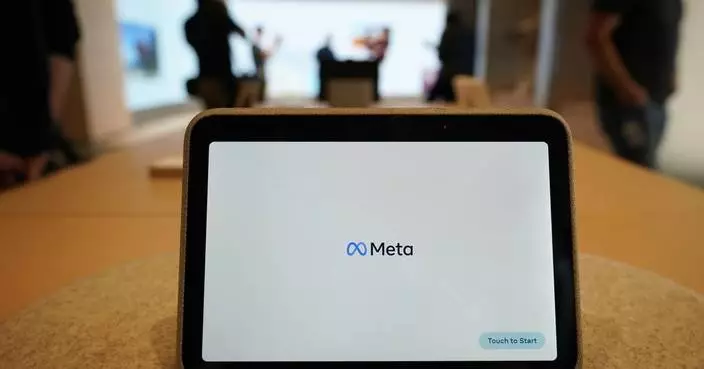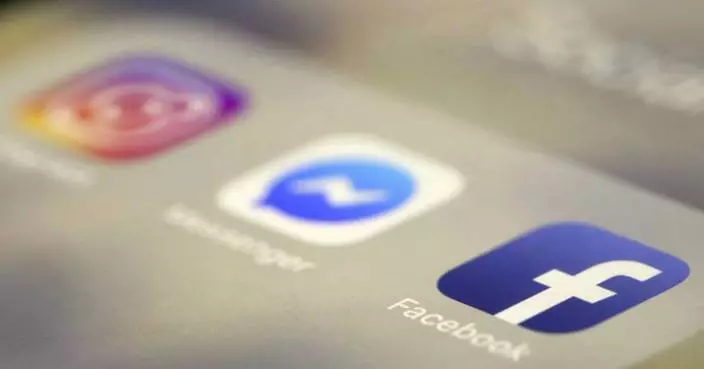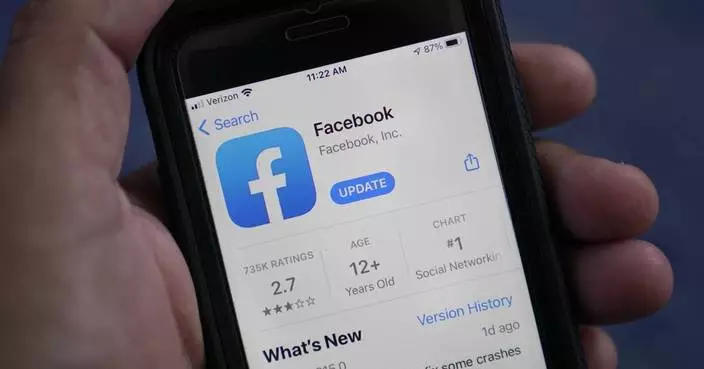Facebook's effort to limit the spread of fake news using outside fact-checkers appears to be having an effect — although that finding comes with a major caveat.
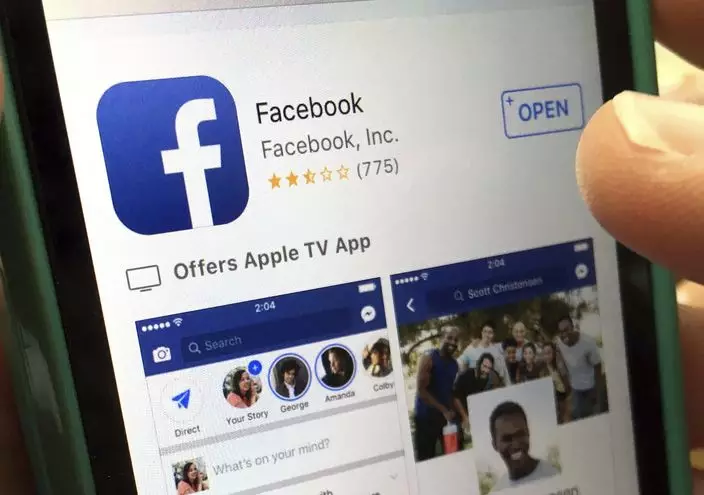
FILE - In this Monday, June 19, 2017, file photo, a user gets ready to launch Facebook on an iPhone, in North Andover, Mass. Facebook’s efforts to reduce the spread of fake news using outside fact-checkers may be working, but with a big caveat. (AP Photo/Elise Amendola, File)
Once a story receives a false rating from a fact-checker, Facebook says, subsequent "impressions" can fall off by 80 percent. Impressions count the number of times Facebook users see a particular post.
But it routinely takes more than three days for a false story that appears on Facebook to be passed along to fact-checkers and given a false rating. And most impressions occur when the story first comes out, not three days later. That's the case with all news, both true and fake.
The information was shared in an email from a Facebook manager sent to the company's fact-checking partners, including The Associated Press. Facebook gave an AP reporter access to the email.
Jason White, Facebook's manager of news partnerships, wrote in the email that the company is working to identify "these hoaxes sooner."
"We also need to surface more of them, as we know we miss many," he wrote.
At the same time, he added that it is "equally important we do this the right way, and don't restrict legitimate speech. It's a difficult tension, but we are confident we can improve our efforts."
Facebook has long stressed that it only wants to go after the "worst of the worst" offenders when it comes to false news and hoaxes. While many stories may be disputed as biased or partially false, the company is trying to avoid the appearance of censorship.
This is also why, as part of its fact-checking program, a story must be found false by at least two fact-checkers before Facebook will label it as "disputed."
LONDON (AP) — The European Union said Tuesday that it's investigating Facebook and Instagram for suspected violations of the bloc's digital rulebook, including not doing enough to protect users from foreign disinformation ahead of EU-wide elections.
The European Commission, the EU's executive arm, said it's opening formal proceedings into whether parent company Meta Platforms breached the Digital Services Act, a sweeping set of regulations designed to protect internet users and clean up social media platforms under threat of hefty fines worth up to 6% of annual revenue.
European authorities are scrambling to safeguard elections amid official warnings that Russia is seeking to meddle with the vote in June, when citizens of the bloc's 27 nations pick lawmakers for the European Parliament.
The investigation includes an urgent request for Meta to provide information about its move to discontinue a key tool for monitoring elections.
“We have a well established process for identifying and mitigating risks on our platforms," Meta said in a statement. "We look forward to continuing our cooperation with the European Commission and providing them with further details of this work.”
Meta is being scrutinized “for suspected breach of DSA obligations to protect integrity of elections," European Commissioner Thierry Breton said in a social media post.
The Commission said it's looking into whether Meta is doing enough to curb the spread of “deceptive advertisements, disinformation campaigns and coordinated inauthentic behaviour” that could pose a risk to “electoral processes” and consumer protection.
Officials said they suspected Meta's content moderation system for advertisements was inadequate, allowing ads made with generative AI including deepfakes to exploited by malicious foreign actors seeking to meddle in elections even as the company makes money from them.
Experts worry that new generative AI systems could be used to disrupt the many elections being held around the world this year, by supercharging the ability to spread disinformation at scale.
The EU also suspects that Facebook and Instagram might be reducing the visibility in recommendation feeds of political content from accounts that pump out a lot of it - a practice known as shadowbanning - and not being transparent about it with users, which would violate the DSA.
A third concern is Meta's decision to phase out Crowdtangle, a tool used by researchers, journalists and civil society groups for real-time monitoring of trending social media posts including during elections. The Commission is giving Meta five days to respond with information on how it will remedy the lack of such a tool.
The Commission is also investigating whether Meta's mechanism for users to flag illegal content is good enough under the DSA, because it suspects it's neither easy to access nor user-friendly.
Brussels has been cracking down on tech companies since the DSA took effect last year, opening investigations into social media sites TikTok and X and ecommerce platform AliExpress. TikTok bowed to EU pressure last week and halted a reward feature on its new app after the Commission started demanding answers about it.
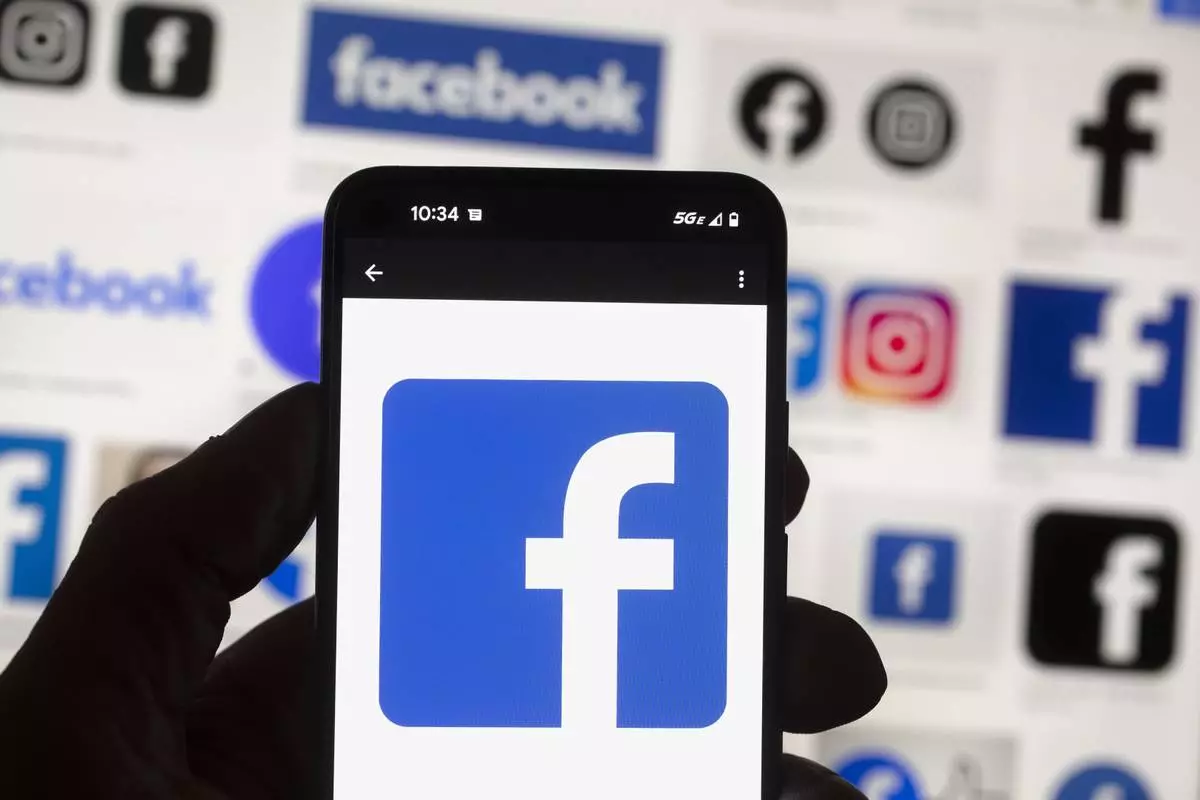
FILE - The Facebook logo is seen on a cell phone in Boston, USA, Oct. 14, 2022. The European Union said Tuesday April 30, 2024 that it's scrutinizing Facebook and Instagram over a range of suspected violations of the bloc's digital rulebook, including not doing enough to protect users from foreign disinformation ahead of EU-wide elections. (AP Photo/Michael Dwyer, File)







